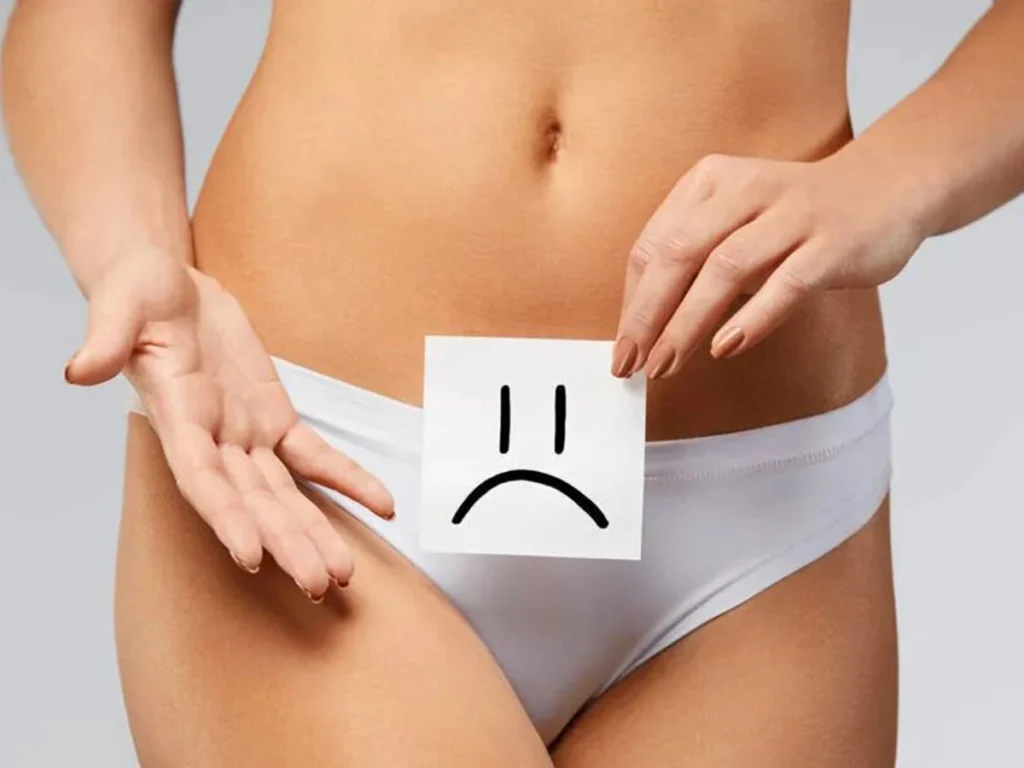Many women feel embarrassed or question themselves when discussing Masturbation:
- “Is this normal?”
- “Is it bad for my health?”
- “What will others think of me?”
You’re not alone. Female Masturbation is not only completely normal but also has both physical and psychological benefits.
It can help you relax, boost your confidence, relieve stress, and even help you gain a better understanding of your body and its pleasure.
Masturbation on the body (blood circulation, hormone regulation)
Many people believe that female Masturbation is just for the sake of temporary pleasure, but from a physiological perspective, this behavior also indirectly “maintains” your body. The two most significant positive effects come from improved blood circulation and hormone regulation.
Promote blood circulation and make the body healthier
During sexual arousal and orgasm, blood vessels in the pelvic area naturally dilate, increasing blood flow. This process allows the vagina and surrounding tissues to receive a more adequate supply of oxygen and nutrients, helping to maintain the health of the vaginal mucosa and alleviate dryness or inflammation caused by poor circulation.
According to some medical observations, regular sexual stimulation can also strengthen the pelvic floor muscles and reduce problems such as urinary incontinence, which is especially beneficial for menopausal or postpartum women.
In addition, orgasm releases endorphins, a natural “pain-relieving hormone,” which not only makes people feel light and relaxed, but also relieves muscle tension, thereby indirectly improving overall blood circulation.
Studies have shown that orgasm can temporarily lower blood pressure and is a beneficial stimulus to the cardiovascular system. Simply put, moderate Masturbation is like a small exercise for the body: it can improve circulation, relieve stress, and increase vitality.
Regulate hormones and balance emotions and physical state
Another underrated benefit of female Masturbation is its positive impact on the hormonal system.
During sexual arousal and orgasm, the body releases a variety of “happiness hormones”:
- Dopamine: brings pleasure and satisfaction, and can relieve anxiety and depression;
- Oxytocin: often called the “cuddle hormone,” it promotes feelings of safety and connection while helping the body relax;
- Endorphins: natural analgesics that can relieve menstrual pain, headaches and other discomforts;
- Prolactin: secreted after orgasm, it helps with relaxation and energy restoration.
These hormones work together to make Masturbation a natural mood regulation mechanism.
British sexual health expert Nina Parnham once pointed out that regular sexual stimulation can help women regulate hormone levels, which is especially beneficial for women in menopause or postpartum period, and helps to alleviate the emotional ups and downs and physical discomfort caused by hormone fluctuations.
Furthermore, moderate female Masturbation may indirectly promote estrogen balance. Estrogen is crucial for maintaining vaginal elasticity, preventing osteoporosis, and maintaining skin radiance. Therefore, regular Masturbation is not harmful to the body, but rather a part of the body’s self-regulation.

The effects of female Masturbation on mental health (stress reduction, self-confidence, sleep)
Female Masturbation is not just a physical experience, it also profoundly affects the psychological state.
For women, this kind of self-exploration is both a way to relax and a ritual to reconnect with themselves. Through pleasure and relaxation, the neurotransmitters and hormones released by the body directly affect mood, stress, and sleep quality, gradually returning the mind to balance.
1. Stress Relief: Let Your Body Take Away Anxiety
As mentioned earlier, during female Masturbation, the body releases “happy chemicals” such as dopamine, endorphins, and oxytocin.
These neurotransmitters can effectively reduce levels of cortisol (the stress hormone), thereby alleviating feelings of tension, anxiety, and irritability.
Simply put, the relaxation after orgasm is not a psychological suggestion, but a physiological reaction: the body is telling you, “It’s safe now, you can relax.”
For women who are under long-term high pressure, lack of sleep, or anxiety, Masturbation is a natural stress-resistant mechanism that does not require external dependence.
Studies show that regular sexual stimulation can significantly improve emotional stability and help people recover from negative emotions—it is more effective and healthier than binge-watching short videos.
2. Enhance self-confidence and self-identity
Female Masturbation is not only a physiological behavior, but also a process of self-cognition.
As you explore, you’ll gradually learn about your body’s sensitive areas, preferences, and rhythms—and this is the beginning of self-acceptance.
This “understanding of one’s own abilities” not only brings more real sexual confidence, but also helps women break free from the psychological constraints brought about by “body shame.”
When you can naturally say “I know what makes me comfortable,” it also means that you are more aware of your boundaries and needs.
In psychology, this sense of control over one’s body and pleasure is an important source of a positive self-image.
On the contrary, the “guilt” and “shame” that come from society or religion are the real source of psychological energy consumption. Masturbation itself will not make people negative or addicted. The real problem is often whether you allow yourself to enjoy it.

3. Orgasm as a “natural sleep aid”
When the body experiences orgasm, it releases oxytocin and melatonin, two hormones thought to balance the nervous system, lower the heart rate, and promote sleep.
This is also why many people feel relaxed, their minds clear, and sleepiness naturally comes after Masturbation.
Additionally, post-orgasm neural activity shifts from excitement to a restorative state, similar to the calming response brought on by meditation or deep breathing.
Therefore, for women who suffer from insomnia, stress-related anxiety, or excessive nighttime thinking, female Masturbation is a natural, safe, and side-effect-free way to relax before bed.
4. Negative emotions caused by female Masturbation
It is worth noting that the negative psychological feelings brought about by female Masturbation—such as guilt, shame, or the feeling of “doing something wrong”—are not caused by the behavior itself, but are psychological pressure shaped by social concepts and educational gaps.
If a person is instilled with the idea that “Masturbation is immoral” for a long time, she will naturally experience psychological conflicts when trying to explore herself. This contradiction is the root cause of anxiety.
Similarly, compulsive Masturbation is not “excessive sexual desire,” but rather an individual using pleasure to temporarily escape the pressure or emptiness in reality.
This is a problem of psychological coping mechanism, not a problem with the nature of Masturbation behavior.
When this behavior causes persistent anxiety or a sense of loss of control, seeking psychological counseling or professional health advice is the most effective way to adjust.
Happiness is part of mental health
Female Masturbation is a relaxation that is achieved both physically and mentally.
It can help you release emotions, boost your confidence, sleep better, and most importantly—regain a sense of control over your body and happiness.
True health is not just the absence of disease, but also the courage to face your own desires and live in peace with them.

Medical perspectives and common concerns about female Masturbation
When people ask, “Is female Masturbation healthy?” the answer is actually very clear: yes, as long as it is done in the right way and at a moderate frequency, female Masturbation is a completely normal and even healthy physiological behavior.
Modern medicine has long regarded Masturbation as a part of sexual health. It is both a way to understand one’s own body and a natural way to regulate psychological stress.
Medical perspective: Dual benefits, physical and psychological
1. Normal physiological needs
The medical community generally believes that female Masturbation, like sexual intercourse, is a natural process of sexual release. It can promote pelvic blood circulation, relieve muscle tension, release endorphins (feel-good neurotransmitters), help the body relax, improve sleep quality, and even improve reproductive health to some extent.
2. Frequency varies from person to person
There’s no “correct” or “standard” amount of Masturbation. Studies show that one to three times a week is common for most women, but the real question is whether it affects your life and mood. As long as you don’t feel tired, anxious, or compulsive, Masturbation more or less frequently is healthy.
3. Hygiene and safety are the prerequisites
Keep your hands, vulva, and Vibrators clean before and after each Masturbation.
Choosing a Vibrator or suction device made of safe materials (such as silicone or medical-grade materials) and disinfecting it regularly can effectively prevent infection or mucosal damage.
If you experience redness, swelling, pain, or unusual discharge, discontinue use and consult a doctor.

Common Concerns and Scientific Clarifications
1. “Will Masturbation affect my sex life?”
No. Masturbation doesn’t reduce sensitivity or prevent orgasm. On the contrary, it helps you understand your preferences and sensitive areas, making it easier to achieve satisfaction in partnered interactions. If there’s an initial gap due to different stimulation methods, communication and collaborative exploration can help improve.
2. “Will Masturbation darken my vulva?”
This is a common misconception. Vulvar pigmentation is primarily related to hormone levels and genetics, and has no direct link to Masturbation.
What can really cause problems is frequent, rough, or unhygienic stimulation, which can cause infection or minor skin damage.
3. “Can Masturbation cause psychological dependence or depression?”
There is no medical evidence that Masturbation causes depression or mental problems.
The only thing to note is that when Masturbation is performed compulsively or affects social life or work, it may reflect underlying psychological stress.
If you are struggling with feelings of guilt or shame, seeking professional counseling is a positive and mature choice.

Breaking social shame: Why Masturbation shouldn’t be hidden
Although science has clearly answered the question of “Is female Masturbation healthy?”—healthy, normal, and even beneficial—many women are still emotionally bound by “shame.”
In an environment where sex education has long been lacking and social prejudice still exists, it is still taboo for women to talk about Masturbation.
However, hiding does not bring health, only understanding and acceptance do.
1. Where does shame come from?
Women’s sense of shame about Masturbation is not innate.
It stems from the long-term social and cultural suppression of female sexual desire—”good girls don’t talk about sex,” “female desire is indecent,” “sexual pleasure belongs only to men”… These old ideas have led countless women to misunderstand natural physiological reactions as “wrong” or “dirty.”
But the truth is, Masturbation is just one of the ways you can learn about your body.
Just as you understand your skin through skincare and your muscles through exercise, Masturbation allows you to better understand your body’s sensitivity, pleasure, and boundaries.
2. Masturbation is not a “replacement for loneliness” but a way to “connect with oneself”
Many people mistakenly believe that Masturbation represents loneliness or lack of a partner, but the opposite is true.
Masturbation is an act of actively exploring oneself and expressing self-love.
When you know how to make yourself happy, relaxed, and satisfied, it will be easier to express your needs and build trust in intimate relationships.
It is an exercise in communication between body and mind—not escape, but awakening.
3. Healthy Masturbation gives women more freedom
Accepting Masturbation is not just about accepting an act, but also about accepting your own body, sexual desire, and happiness.
It allows women to no longer be bound by external standards of “should” or “can” and instead experience life in their own way.
Because Masturbation can help you understand your body, relieve stress, and boost your self-confidence, it is essentially an act of self-care.
Like yoga, meditation, or a hot tub, it helps you develop a gentle, authentic relationship with your body.
4. From Concealment to Openness: Change Begins with Yourself
Changing social attitudes takes time, but personal liberation can begin now.
When you can face your desires naturally and no longer equate Masturbation with “shame,” you have taken the first step towards true sexual health.
There is no need to deliberately publicize it, nor do you need to deliberately hide it. Masturbation does not need to be defined as a secret—it is just a gentle moment that belongs to you.

Make Masturbation a part of a healthy lifestyle
If the previous content tells you that “Masturbation is healthy,” this part wants to tell you that you have the right to enjoy it.
Female Masturbation is not an abnormal behavior, but a communication between the body and emotions.
When you explore your own joy, you are actually learning how to love yourself, take care of yourself, and listen to yourself.
Like meditation or fitness, Masturbation can be a form of healing—a way to reconnect your mind and body.
Let it become the “little happiness” in your life:
On stressful nights, when you crave relaxation, you don’t need any excuse.
This is not a sign of loneliness, but another form of intimacy—
An intimacy between you and yourself.
True health is not just the absence of disease, but the understanding of balance.
When you can talk about, understand, and practice Masturbation naturally,
You’re also breaking free from old inhibitions and making sexual health a part of your life, not a forbidden zone.
Masturbation is not just an act—it is an attitude:
Accept your body, respect your desires, and enjoy your existence.